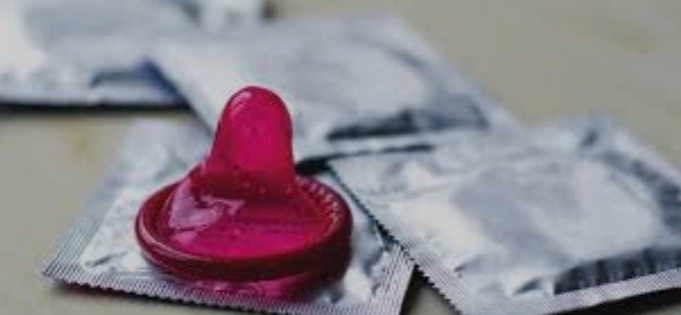How we adapt to rising price of condoms – sex workers
These are hard times for most Nigerians following the rising costs of goods and services across the country. From foodstuffs, to fuel, rents, drugs, condoms and medications that boost sexual health have all witnessed astronomical increases. This rise in prices has raised concerns among various groups, including health organisations and individuals who rely on condoms for protection. They fear that the increasing cost of condoms and other contraceptives could lead to unsafe sex and unintended pregnancies among citizens.
Condoms are the only type of contraception that can both prevent pregnancy and protect against sexually transmitted infections (STIs). There are two types of condoms: external condoms, worn on the penis – sometimes called male condoms. internal condoms, worn inside the vagina – sometimes called female condoms
The importance of condoms as a preventive measure cannot be overemphasised. According to the AIDS Healthcare Foundation (AHF), the world’s largest HIV/AIDS healthcare organisation, about 117 million fresh cases of Sexually Transmitted Infections (STIs) have been averted through the use of condoms, since 1990. AHF described condoms as one of the best options, after abstinence, for helping people and their partners to have safe sex and more fun.
In Nigeria, there are different types and brands of condoms and the best are often determined by their quality, durability, level of comfort and protection they offer. Some condom brands include GoldCircle, Fantasy, Durex, Fiesta, Kiss, and Rough Rider among others.
Checks at pharmacies and markets around Lagos showed that condom costs had risen by more than 200 per cent to 500 per cent over the previous year. Popular condom brands such as Durex, which used to sell for roughly N500 to N1000, now sell for N2500 to N3000, while Kiss and GoldCircle Condoms, which were once sold for N150, now cost more than N250 to N300. Also, 10 Fc2 vaginal condoms, which were previously available for roughly N2,000, now cost more than N5000. The huge surge in contraception prices is causing medical stakeholders to worry.
According to Dr Charles Omeka, a family doctor of the Star Hospital Lagos, access to affordable contraceptives is critical not only in ensuring the health of couples, but also in protection from sexually transmitted infections (STIs), and planning the desired pregnancy. “It indeed calls for worry because I know how so much effort was made to convince people to embrace safe sex and embrace condom use. We got encouraging responses because condoms were afforded and even distributed free at some hospitals. But with this increase in prices of condoms, I’m afraid, because people would easily reserve to start having unprotected sex. People struggle to feed themselves and wouldn’t worry about spending N2000 or N5000 to buy a pack of condoms,” Dr Omeka said.
Another respondent, Mr Ngozi Kogo, a pharmacist, also expressed worry and hinted at the worrying implications of the increase in condom prices. “The hardship in the country is negatively affecting everything. So people would no longer bother with their sexual health because of the increasing prices of condoms,” he said. “You don’t expect a man or woman struggling to raise N2000 to buy garri and feed the family, to think about buying a pack of condoms for N2000.
“The situation is worrisome because couples and youths will now prefer to do skin-to-skin or withdrawal methods when they feel an urge for sex. These are very unsafe and the aftermath is that Nigerians should expect a surge in unwanted pregnancies, unsafe abortions, plus increased cases of STIs,” Mr Kogo.
However, amid these grim pictures painted by experts, one group that seems to be largely unaffected by this increase in condom prices is prostitutes.
Prostitutes, who provide sexual services in exchange for money, have always faced numerous challenges in their line of work. From societal stigma to legal issues, they navigate a complex landscape. Yet, when it comes to the rising prices of condoms, they have found ways to adapt and continue their work without compromising their safety or the safety of their clients.
A commercial sex worker who identified herself as Ifeoma Duru, operating around the Ire-Akari estate in Isolo, said they are unperturbed by the rise in condom prices because they have found to have safe sex without burdening their customers on the assess charges.“Condom prices never and will never affect her business,” she said. “I always have it in my bag, and I add them to my charges. I have to protect myself. The high pricing cannot compel me to go raw with any customers. But for some of my customers who don’t like wearing condoms, I bring out female condoms.”
Duru said she earns about ₦10,000 after an all-night sex rendezvous with different men, and that their prices for a round of sex are comparative. “I earn enough to buy enough condoms to protect myself and my customers. But when I go to another brothel and I see what others charge, I try to upgrade or reduce my prices too. Then I don’t allow my clients to use their condom on me because I don’t know how safe it is. I have a life to live so I always insist on using my own condoms. And when I run out of condoms I borrow from my colleagues. So condoms cost, or e cheap, shop rent no increase. Business must continue,” she said.
Another reason why rising condom prices do not significantly impact sex workers is because they have access to channels for obtaining condoms at lower costs or even for free. Amanda Ameh, another sex worker operating in Oyingbo brothel, says they receive condoms from health organisations, outreach programs, or other sources that come to promote safe sex practices. “Most don’t buy condoms at the open markets, and that is why we don’t feel the pinch of the increase in condom prices,” she said.
“What we suffer here most is the increase in food, drinks and house rent, and business has been very dull. That’s the one that affects us more, not condoms. Some organisations bring it for us to buy at a cheaper rate. I hear that the condoms are supposed to be given free of charge. But whenever the agents come here, they still collect money before they give us the condom. So the rise in condom prices doesn’t affect what I charge my clients. I still collect between N2000 to N5000 for a round of sex, depending on how the night is. I’ve not changed what I charge. But things are so expensive, now most nights you won’t see a single man coming here to drink in our bar. It’s that bad,” Ameh lamented.
Additionally, some of the sex workers confirmed that they purchase condoms in bulk, from suppliers that bring them to their brothels. “We buy in bulk to take advantage of discounts or special offers, which helps us mitigate the impact of rising prices,” said another sex worker in Ojuelegba who simply identified herself as Linda. “The cost of not using condoms far outweighs the cost of purchasing them, so we always use them regardless of price fluctuations. Many of us here are single mothers, so try to keep ourselves safe for our families,” she said.
Regardless of this seemingly soothing situation, healthcare workers argue that sex workers’ resilience in the face of growing condom prices does not diminish the necessity for the government to provide more inexpensive and accessible sexual health supplies. They emphasised that health institutions and policymakers should continue to promote safe sex awareness and the distribution of affordable condoms to all individuals, including sex workers, across the country.
“Also, non-governmental organisations should increase the distribution of free condoms to protect the health of youths,” Mr Kogo said.
We do everything possible to supply quality news and information to all our valuable readers day in, day out and we are committed to keep doing this. Your kind donation will help our continuous research efforts.
